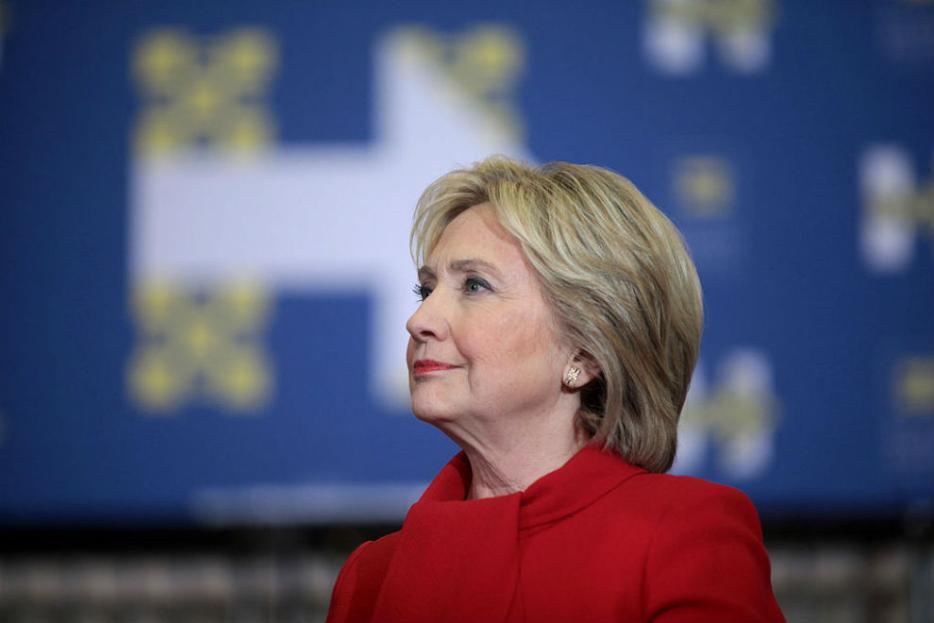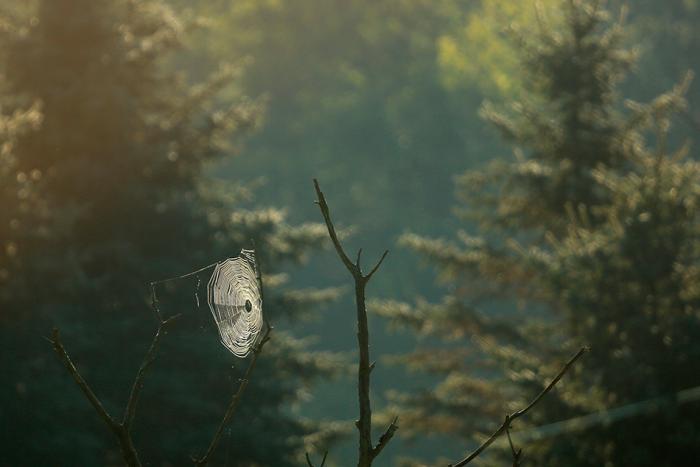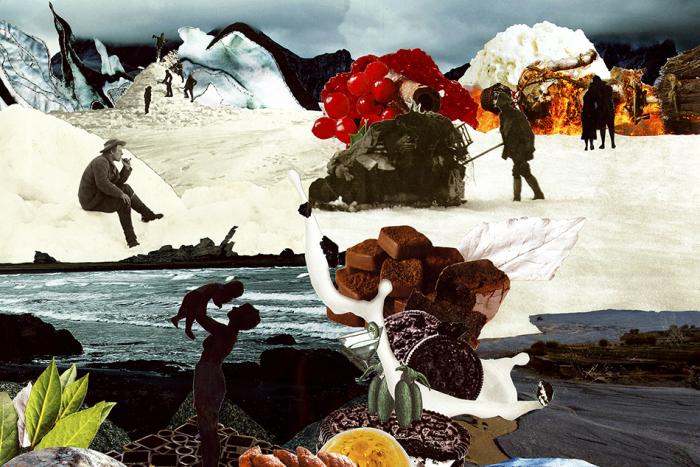My second-grade teacher, Ms. Champion, lived up to her name in countless ways. She was one of those teachers who ended up doubling as a counsellor for many of her students: deeply empathetic, nurturing to a point that would exhaust others, always available to listen. She was also the kind of teacher of whom my family might have disapproved—liberal as she was, fond of leading meditation and talking about our self-esteem—had she not been so obviously good for me, the lonely, weird Asian kid in a class full of white kids. I did not confide in many adults back then, but I talked to Ms. Champion all the time. About books, about writing, about feeling underestimated, about feminism—though, at the time, we didn’t call it that.
Ms. Champion, more than anyone else in my early life, made me a feminist. She covered our classroom walls with posters of famous women, giving us mini-lessons on these women and calling it “herstory.” I don’t recall her ever saying the word “feminism” aloud—toeing the line at the parochial school she loved in our fairly conservative Oregon town must have required all sorts of careful calculations over the years; it certainly did for me. I grew up in a family in which the word “feminist” was usually uttered as either a joke or an insult, and to have a teacher like Ms. Champion at such an early age was to find a world of thoughts and ideas and stories and heroes I would not have known otherwise. She presented women’s worth, humanity, and heroism as important, even the default, and that was more radical and more powerful than soapboxing would have been to a group of largely sheltered second-graders.
It was a Catholic school, so we had the usual Nativity and Passion plays, Christmas pageants and May crownings; for me, the highlight of the school year was always Ms. Champion’s Women’s History Month play. Every year without fail, she organized her class into a cast and crew, led daily rehearsals, and finally presented to the whole school a story about a famous woman, or a series of folktales from around the world that featured women as heroes, or—when I was in her class—a women’s history musical revue, with stirring songs about Sybil Ludington, Sally Ride, and Susan B. Anthony. I got to be Sally Ride, and unsurprisingly spent the rest of my second-grade year and part of my third telling everyone who asked that I wanted to be an astronaut, but I loved the Anthony song, too. It was the slowest of the three, stately, with the tenor of a church hymn: Raise your voice and join us in our song / Failure is impossible, although the road is long. Before we sang it, a girl in our class read about Susan B. Anthony and her fellow suffragettes, how they had been attacked, assaulted, and jailed for attempting to vote.
I remember that Ms. Champion never showed any outward signs of anger or frustration when she told us about these things in class. I couldn’t fully imagine or, at that age, appreciate what these women had gone through. The relentless march of history was a progressive one, as presented to us in school. It made me wonder, in my naive second-grade way, how people at the time could seriously have resisted the idea of women’s suffrage. Hadn’t they thought it inevitable? As inevitable as the day, sometime not long in the future, when we’d elect a woman president?
*
I made it to college still generally thinking of history and the overall human experience as Dr. King’s long arc, bending toward justice. And though I learned, as a history major, that nations and political systems and societies are terribly fragile experiments—a fact this election year has driven home yet again—it is still that progressive story I tend to present to my own children, tailored for their ages, with plenty of caveats about the oppression we’ve failed to end, the things we still need to do.
I don’t know if we’re striking the right balance between history and the present, honesty and hope, or if there is a right balance at all. But my oldest is only eight; while there are things I want and need her to see, to understand, to fight for, at the same time, I feel I need to give her reasons to hope. So she knows why her dad and I are voting for Hillary; she knows about the wall and the Muslim ban and that Trump is “mean to women.” She knows about Black Lives Matter and why Colin Kaepernick is protesting. She knows that, if she has to choose a partner in gym, she should find a person who might not get picked otherwise. She knows that we expect her to speak up, stick up for anyone being picked on for any reason, even if it feels hard to do. I want her to have enough hope to believe she can help make things better, now and in the future, because ultimately that’s the job she has to do.
I think of her growing awareness as a slow-expanding bubble. In her preschool mock election four years ago, she cast her vote for Barack Obama, largely because his ballot was blue and blue was her favorite color. At the time, the only thing she could tell me about him was, “He wants to spend more money so we can help more people.” This year, she wrote to him about police brutality and the dangers of fracking, and received a letter and an autographed photo back from him (“Your new pen pal seems nice,” I teased). In the school mock election this year, she voted as a far more worldly and informed third-grader, one who’s spent the past year asking us questions and following the election about as much as we would allow, given the lewdness of the Republican candidate. She proudly showed me her I VOTED sticker last week, the day of the school mock election. “I voted for Hillary, of course!” she said. “It doesn’t count for the real election, though.”
I wonder if I’m bequeathing my daughter a little too much anger this election year.
She always calls Secretary Clinton “Hillary,” as if she’s a familiar friend rather than a stranger, despite the fact that she calls very few adults in her life by their first names. She has three Hillary t-shirts, including one that reads “Run Like a Girl,” which she likes to wear to her Girls on the Run workouts, and a Hillary magnet her grandmother gave her. She’s bargaining with us to stay up late on Election Night, and has already put in a request to attend Inauguration (it’s a school day, and it’s going to involve hours of standing around in the freezing cold, so . . . can we not? I asked her). The day Clinton clinched the Democratic nomination, she pointed at the television and then looked at me, her face shining in delight, so thrilled she couldn’t even speak. I remember feeling moved for her, and it surprised me somewhat. Until then, I don’t think I’d considered what a huge moment it would be for my kid.
Like many women, I don’t feel that Hillary Clinton necessarily represents me, though I supported her in the primaries and I am glad enough to vote for her. We’re separated somewhat by my Korean heritage; my West coast, white working-class upbringing; probably most of all by my aversion to America’s hawkish foreign policy. But her platform on disabilities means a lot to me as the parent of an autistic five-year-old, and the more I learn about her, the more I like her. When this whole thing started, I told myself I just wanted to be able to vote for someone who seemed a little humble. Someone who was, ultimately, open enough to be teachable. When my daughter asked me why I’m supporting Hillary Clinton, I told her, it’s because she works hard and that helps her get better.
I remember when my daughter was younger—four or five—we were gifted with one of those ubiquitous sets of educational plastic placemats, depicting the solar system, a world map, a map of the United States, and all the U.S. presidents. At dinner one night, she read all the presidents’ names aloud, beginning with George Washington. “Notice something about all of the presidents?” I asked. It didn’t take her long: “They’re all men?” “That’s right,” I said. “That’s why Mama’s mad all the time.” It was a joke, and it also wasn’t. I don’t know if it struck her as unjust right then—I suspect it did—or if she took her cue from me, but I remember her exclaiming, “I can’t believe there hasn’t been a girl president!” with a look of great indignation.
*
I’ve never been great at hiding my emotions, though I was also never entirely comfortable, as a child, owning and expressing my anger. To do so when you were attacked was to give your tormentors unnecessary satisfaction; to show anger in front of adults, I was taught, was always disrespectful. I think I was in my twenties before anyone told me that feelings, in and of themselves, can’t be wrong; feelings just are.
I believe “It’s okay to be mad” is a good thing to say to kids. And even “You should be mad. I’m mad about this.” Sometimes, though, I wonder if I’m bequeathing my daughter a little too much anger this election year. Is it good for her to see how obviously angry I am, to let her to be angry with me now that she is aware of some of my reasons? What will the long-term effects of that anger be? I was amused but also a little horrified when my daughter spotted a Trump sign in the beach town we visited in October and said, “We should go steal it, take it to the dump, grind it up, and sprinkle the dust on Trump.” My husband and I both cracked up, but he also looked at me with slightly raised eyebrows, as if to silently communicate: She gets this from you.
I neither expect nor want my kids to go through life blithely accepting the things that are good, the things they have been given, while remaining oblivious to the experiences of others. But as a parent, I do sometimes wonder if I should, perhaps, strive to be more like my beloved second-grade teacher was with us? We’ve kept in touch, off and on, over the years, and knowing her now, I’m sure she felt angry and frustrated with how things were and how things are—I just didn’t know it when I was in her class, so all I absorbed at the time were her ideals. It’s not that I think my honest emotions or anyone else’s should be suppressed for the sake of palatability, but is eight years old too young to feel and express such open anger and scorn, even toward a person like Donald Trump?
But maybe it’s all right that my daughter already knows a taste of the righteous anger so many women feel every day. She should be angry about systems of oppression that hurt her and hurt others. Anger isn’t a useless or unjustified emotion if we take it and harness it, if we use it to reform things that are broken. Maybe I, too, felt a touch of that anger when I learned in second grade how women had been left out of the history books, and I just wasn’t conscious of it because, as a little girl, I never believed I had a right to be angry.
I know that anger isn’t her only feeling, though, shielded as she is by her age—and by us—from the very worst elements of this campaign. The closer we get to Election Day, the more anxious I feel, in spite of my best efforts to remain calm and cautiously optimistic; but for my daughter, still as excited if not more so than she was on that second-to-last night of the Democratic National Convention, these are not days for poll-reading and panic, but rather the dwindling hours of an era that should have ended long ago. Her anticipation, the thrill she clearly gets from talking about “our first girl president,” are things this hellscape of an election have given her, and all the hateful words and the worry everyone I know feels for our country have not been able to take them away. “It was always gonna happen eventually, Mama,” she told me the other day, when we were discussing the possibility of Hillary’s victory; by that, she meant that “a girl president” was always in our future. I’m glad she feels that way. I’m glad that, whatever else she feels, there is also hope. Hope, a measure of justified anger, and a crystal-clear memory of our first woman president taking the oath of office in January aren’t the worst things she could inherit.






